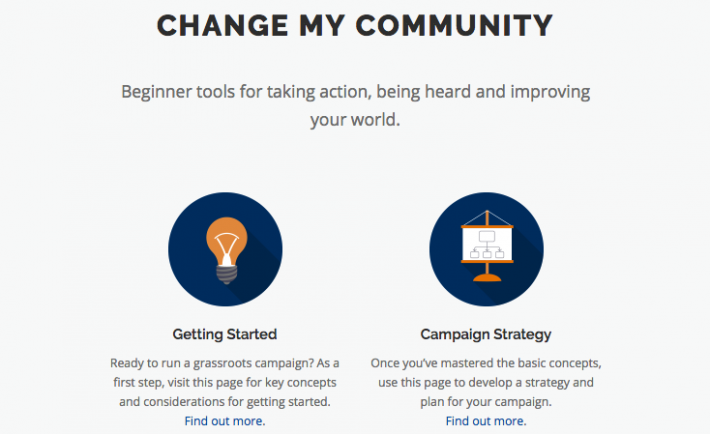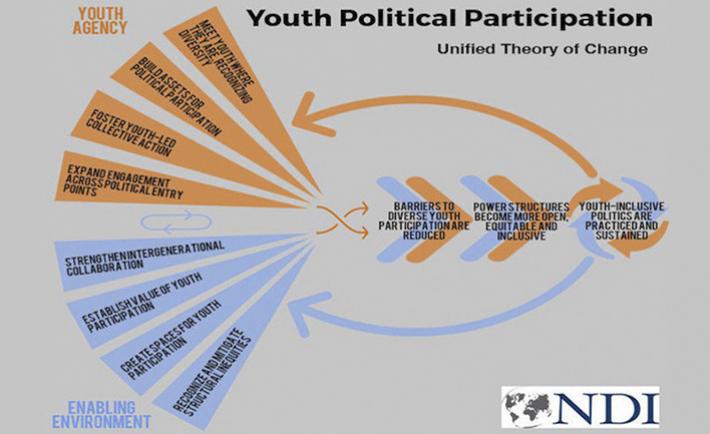Happy International Youth Day! I remember watching President John F. Kennedy’s 1960 inaugural address. “Ask not what your country can do for you, but what you can do for your country,” he said. As a teenager, those words had a profound impact on me, and they still resonate today. Most people who dedicate their lives to public service can tell a similar story of inspiration -- an epiphany that drove them to change their communities for the better. But going from inspiration to action can be daunting. Many young people who are inspired to make a mark on their communities don’t feel like they have the support or know-how to get started.
Happy International Youth Day!
Progress toward youth-inclusive politics
Today’s youth are at a critical juncture. The current young generation - the largest in global history - is disproportionately affected by unemployment, insufficient access to education, violent conflict and a number of other challenges. Eager to play a role in changing their communities and nations for the better, many young people have become frustrated with political processes that seem out of reach, out of touch and ineffective, and have since turned to other ways to give back to their communities. To encourage youth to “opt-in” to the state, governments need to give them more than a seat at the table to address matters affecting their lives. Failure to do so may further widen the growing rift between youth and political institutions, and make youth more vulnerable to recruitment by extremist groups.
Grounding Theory in Practice: Youth programs in Jordan and Kosovo
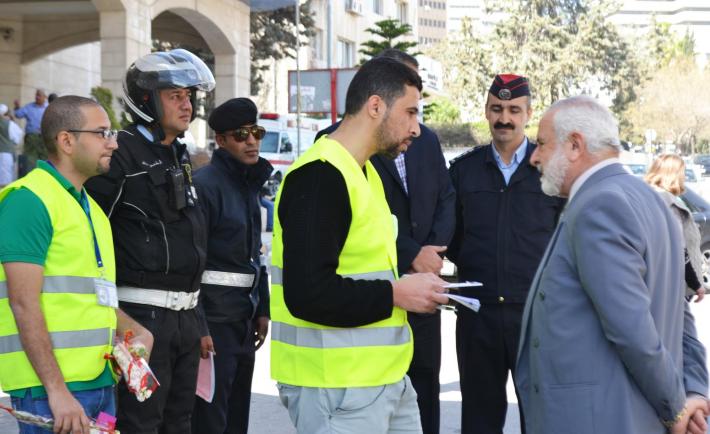
Usharek+ participants in Jordan launch their advocacy campaign with the goal of improving traffic safety.
NDI’s new theory of change unifies important elements of youth political participation programs and depicts how they can interplay to change practices of youth participation. This theory, which I blogged about last month, was not merely academic exercise from the “ivory tower.” It draws on discussions with young politically active women and men across Africa and Latin America, collaborative discussions with democracy and governance practitioners from around the world, and deep reviews of effective youth programs NDI is conducting in Jordan and Kosovo. The Jordan and Kosovo programs show how the theory of change can play out in practice.
How to help youth strengthen their participation and influence
Surging youth activism and leadership has the potential to change the world. Accordingly, young people are increasingly being recognized as indispensable agents for sustainable development and the source of a demographic dividend. But more work is necessary to support their active engagement and satisfy young people’s desire to have more than just a seat at the table. To help meet this need, NDI recently developed a unified theory of change, illustrated in the graphic above, which depicts the process of institutionalizing meaningful youth political participation.
Youth Want More Than a Seat at the Table
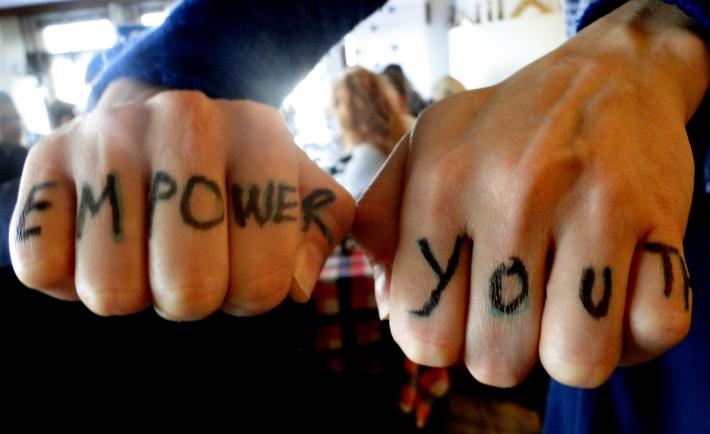
During an NDI workshop in Kosovo, a participant displays the message for a inter-ethnic advocacy campaign. Arta Qorri
International Youth Day 2016 comes at a time when the United Nations and other members of the international development community are recognizing youth as champions for sustainable development. This reflects an ongoing shift in perspectives from fearing the ‘youth bulge’ as a problem to be solved, to partnership with young women and men as leaders and a demographic dividend that can accelerate global progress. Today’s youth – the most connected, educated and open-minded generation the world has seen – have the power to foster innovative and transformative change.
Four New Resources for Strengthening Citizen Access
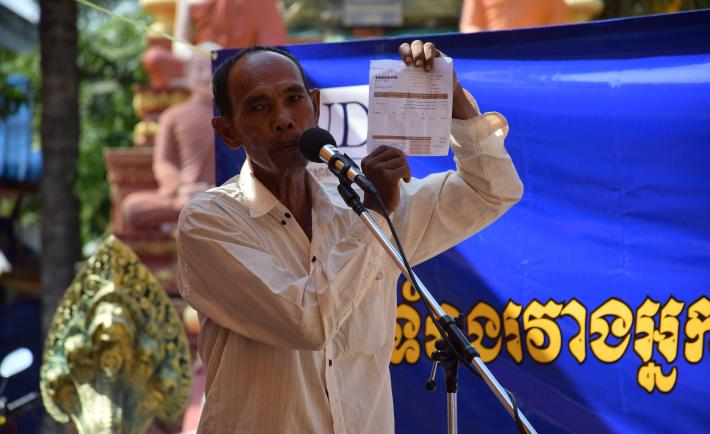
At a constituency dialogue event in Cambodia, a participant displays his electricity bill to show members of the National Assembly how expensive energy is in his village, and asks them for a solution to rising costs. NDI helped organize the constituency dialogue event. (Photo by NDI's Chhiv Kimsrun)
Citizen access and influence in political decision-making can vary across identity groups. NDI programming helps citizens expand civic space and streamline processes to enhance their own political participation, with a cross-cutting priority to support the inclusion of historically marginalized populations. This past month’s resources discussed the need to lower barriers to voter registration for people with disabilities, how to partner with faith-based organizations and religious leaders, and the use of ICTs in women’s empowerment. In August, the Citizen Participation team and the Political Parties team organized a ‘TweetTalk’ on what political parties can do to include youth in the political process.
Jon Stewart’s The Daily Show Made Politics Cool Again…and Young People Followed
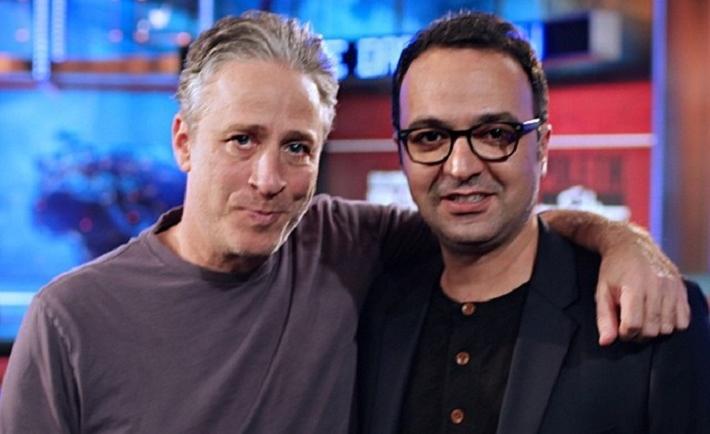
Parazit co-host Kambiz Hosseini and The Daily Show host Jon Stewart on the set of The Daily Show (Photo: Kambiz Hosseini).
Though the studio lights have dimmed for the last time on Jon Stewart’s tenure as host of The Daily Show, his brand of political satire -- which aimed to keep leaders accountable, the media honest and youth interested in government -- shines on through its immense success with young audiences at home and abroad. The Daily Show sparked a new era of political satire, a step beyond the traditional editorial cartoon, satirical magazine and occasional political joke on late-night television. In the United States, Stewart’s style of “fake news” revolutionized not only satire in (and of) the media, but how youth engage with politics.

